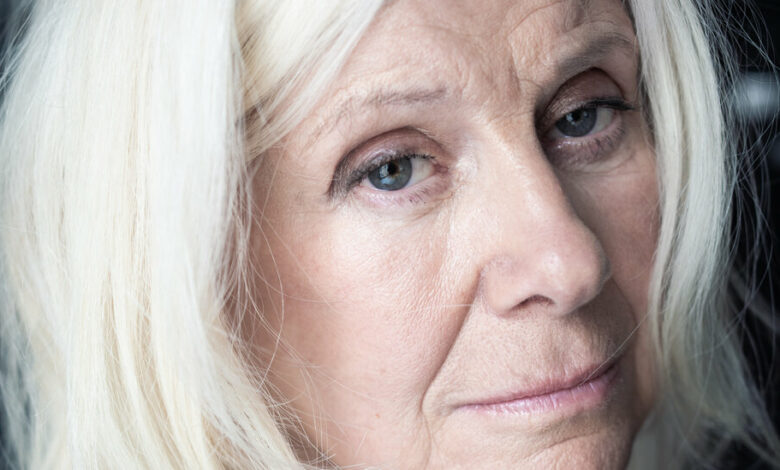A woman sleeping with her stepson? This director knows it can be shocking.

When French director Catherine Breillat was 40, her then-husband and the father of her first child ended their relationship to live with a much younger woman. Shortly afterwards, Breillat started dating a man twelve years her junior.
“Men want to reject their women of a certain age by saying that no one can love them anymore,” Breillat said in a recent video interview through an interpreter. “But for me, that’s not true. I want to tell other women that there’s no reason to despair.” In “Last Summer,” which hits theaters Friday, she explores this realization through an incendiary premise.
Since the 1970s, the acclaimed director, now 75, has repeatedly turned her unyielding gaze on girls’ troubled sexual awakenings, often at the indifferent hands of older men, but in “Last Summer” that dynamic is reversed: A middle-aged lawyer, Anne (Léa Drucker), risks her career and marriage by having a secret affair with her 17-year-old stepson, Théo (Samuel Kircher).
The film, Breillat’s first in a decade, joins several recent films that focus on the power dynamics of heterosexual couples in which the woman is the parent, including the lighter Anne Hathaway-esque “The Idea of You” and Todd Haynes’ divisive “May December”. (Haynes’ film is inspired by the true story of a teacher who began a relationship with one of her students.)
According to Breillat, this wave of films reflects a simple reality. “It’s the truth,” she said: “Young people are attracted to older women.”
While “May December” casts the young man as a victim struggling with conflicting feelings, Breillat makes the teenager in her film “not just the object of desire, but the subject of desire,” she said, and the one who “insists on this affair happening.” Breillat refuses to pass judgment on either of her characters, describing instead how illicit desire consumes them both.
“I find such a portrait much more interesting than the moralizing society likes to do,” she said.
Part of Breillat’s motivation in making “Last Summer” — a reinterpretation of another film, the 2019 Danish drama “Queen of Hearts” — was to interrogate the idea of the “cougar” (a term she hate) and the social norms associated with it. suggesting “if it’s a woman seen with a younger man, you assume he’s only with her for financial reasons,” she said.
In her nearly fifty-year career, which included starring in the scandalous Bernardo Bertolucci film “Last Tango in Paris,” female sexuality has been the primary concern of Breillat’s work.
“Few directors get as deep under the skin as Breillat, an old, reliably interesting provocateur who pushes the boundaries of what the world thinks women should do, say and be,” wrote Manohla Dargis in her Times review of “Last Summer.”
However, Breillat’s fearless exploration of desire on screen has sometimes attracted resistance in France, where it has rarely been recognized. If her work had not been so positively received in English-speaking countries, Breillat believes her career would not exist in her home country.
When she released the 1988 feature film “36 Fillette,” in which a forty-something playboy manipulates a 14-year-old girl into a sexual relationship, French critics, Breillat recalled, declared it “the worst French film ever made.”
“I was criticized for having a male protagonist who was a ‘caricature,’” she said. “And of course the #MeToo movement has shown that in my cinema I never make anything up, that what I depict is reality.”
Although she is known for the sometimes explicit moments of intimacy in her work, Breillat said she did not see “Last Summer” as a story centered on carnal pleasure. “This film is about the dark side of desire,” she said.
Yet “Last Summer” contains three sex scenes between Anne and Théo, each at a different point in their doomed liaison. However, their nudity is deliberately left out of the picture. “You don’t have to shoot at their bodies,” Breillat said. “The transcendent emotions they experience are only visible on their faces.”
Focusing on their excited faces, Breillat said she wanted to ask herself what the characters were thinking as they engaged in the sexual act. What are they imagining?
“Love is about telling yourself stories; it’s about projecting yourself onto a relationship,” she said. “That’s why it’s fiction. It’s about thoughts. It’s about ideas.”
Breillat said she is strongly opposed to hiring intimacy coordinators, whose job, she said, was more to “put blinders on the eyes of the audience” than to ensure the emotional safety of the actors. In her view, that is what the director is for. “If a director is not capable of staging a scene like that, then he shouldn’t be doing it,” she said.
There is always fear involved in filming sex scenes, Breillat said, because they require extreme vulnerability. For the French provocateur, it should be this way.
“What is the point of making films if you are not afraid, if the stakes are not so crucial that it concerns what is at the core of our existence?” she said.




